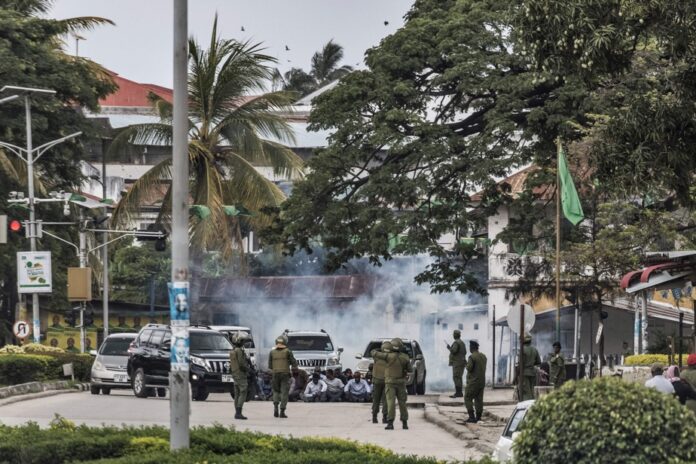(Addis Ababa) The Ethiopian government and the Oromo Liberation Army (OLA) began initial discussions on Tuesday in Zanzibar, a semi-autonomous island of Tanzania, announced a spokesman for this rebellion active in the Oromia region. , the largest and most populated in Ethiopia.
“Negotiations started this (Tuesday) morning in Zanzibar. These initial discussions aim to lay the foundations for more in-depth discussions in the very near future,” Odaa Tarbii told AFP.
“The aim at the moment is to create an atmosphere of confidence and to clarify the positions” of the parties, he added, adding that “the governments of Norway and Kenya are acting as mediators”.
These two governments could not be immediately contacted.
Asked by AFP, the Ethiopian federal authorities did not respond immediately. No details have been released so far on these negotiations announced unexpectedly on Sunday by the Ethiopian Prime Minister.
Mr. Abiy made the announcement during a ceremony to pay tribute to the actors and sponsors of the ongoing peace process in Tigray, a region in northern Ethiopia where a peace agreement signed on November 2 ended two years of conflict between the Ethiopian government and the regional authorities who have gone into rebellion.
The government of Tanzania confirmed on Tuesday that it had “agreed to host” these negotiations at the request of the Oromo rebels.
Some participants “have arrived in Tanzania since yesterday, others are arriving today and they will continue their discussions,” Tanzanian Foreign Minister Stergomena Tax told reporters.
The “official” OLA has been fighting the Ethiopian federal government since its split in 2018 with the historic Oromo Liberation Front (OLF), which that year renounced armed struggle.
It has given birth to a nebula of armed groups claiming to be part of it, but with which the links are loose.
Estimated at a few thousand men in 2018, the numbers of the OLA have greatly increased in recent years, even if observers consider it insufficiently organized and armed to represent a real threat to federal power.
The situation in Oromia, a region that surrounds the federal capital Addis Ababa, is extremely confused: there are internal political struggles in the region, territorial disputes and animosities between communities.
Oromia has been the scene of ethnic massacres in recent years – the perpetrators of which have not been clearly identified – particularly in the Wollegas, a remote area in the far west where they mainly target the Amhara group, a minority in the region.
The OLA has been repeatedly accused by Mr. Abiy’s government of being responsible for these massacres, which it consistently denies. The government, for its part, is accused of carrying out a blind repression which fuels the resentment of the Oromos – the most populous people in Ethiopia – against the federal power in Addis Ababa.


















